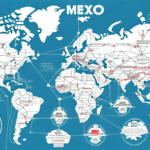Understanding the Differences Between UPS and USPS
When it comes to shipping packages, two prominent options stand out: UPS and USPS. Both offer distinct shipping speeds, tracking features, customer service options, and pricing structures. For individuals and businesses, understanding these differences is crucial in selecting the most suitable service for their specific needs. This comprehensive guide delves into the features of UPS and USPS, providing insights to help you make an informed decision.
Shipping Speeds and Options
USPS Shipping Services
The United States Postal Service (USPS) provides a diverse range of shipping options catering to various needs:
- First-Class Mail: Ideal for lightweight packages and envelopes, offering delivery within 1-3 business days.
- Priority Mail: Provides faster delivery within 1-3 business days with added benefits like tracking.
- Priority Mail Express: Offers overnight delivery to most U.S. locations, ensuring urgent shipments arrive promptly.
According to the USPS website, USPS remains a cost-effective solution for smaller and lighter packages, making it a popular choice for individuals and small businesses.
UPS Shipping Services
UPS offers a more streamlined set of shipping options focused on reliability and speed:
- Next Day Air: Guarantees overnight delivery to most U.S. addresses.
- 2nd Day Air: Ensures delivery within two business days, balancing speed and cost.
- Ground Shipping: Offers economical shipping with delivery times ranging from one to five business days.
UPS's focused range allows for predictability in delivery times, which is essential for businesses requiring consistent shipping schedules.
Pricing Structures and Cost Efficiency
USPS Pricing Advantages
USPS is generally more affordable for smaller and lighter packages. Their pricing structure benefits those who ship infrequently or handle low-volume shipments. For instance, First-Class Mail is significantly cheaper than comparable UPS services, making it a preferred choice for personal mail and small packages.
UPS Pricing for Larger Shipments
UPS tends to offer better rates for larger and heavier packages. Their Ground Shipping is competitive for bulk shipments, providing cost savings for businesses that ship large quantities regularly. Additionally, UPS offers various discounts for businesses with high shipping volumes, enhancing their cost-effectiveness.
According to the 2023 shipping industry report by Statista, businesses that leverage UPS's bulk shipping options can achieve up to 20% savings compared to individual shipments via USPS.
Tracking and Delivery Updates
USPS Tracking Capabilities
USPS provides tracking for all package types, though updates occur less frequently compared to UPS. Customers receive notifications upon delivery or if there are delays, ensuring basic transparency in the shipping process.
UPS Advanced Tracking Features
UPS excels in tracking technology, offering real-time updates and multiple notification options:
- Real-time package tracking with detailed status updates.
- Alerts via text or email upon delivery or if there are any transit issues.
- Mobile app features that allow for scheduling deliveries, redirecting packages, and providing specific instructions to drivers.
These advanced tracking features are particularly beneficial for businesses that require meticulous monitoring of their shipments.
International Shipping Capabilities
USPS International Services
USPS offers several international shipping options, such as Priority Mail International and Global Express Guaranteed. These services are typically more affordable for lightweight and less urgent shipments. However, delivery times and reliability can vary based on the destination country's infrastructure.
UPS International Services
UPS provides comprehensive international shipping solutions with enhanced reliability and speed:
- Worldwide Express: Ensures delivery within 1-3 business days to major international destinations.
- Worldwide Expedited: Offers a balance between cost and speed, delivering within 2-5 business days.
UPS's robust global network and partnerships with local carriers contribute to more consistent and faster international deliveries.
For detailed information on international shipping options, refer to the UPS International Services and USPS International Shipping pages.
Customer Service and Support
USPS Customer Service
USPS offers customer support through phone, email, and an extensive online help center. They provide resources for common issues, tracking assistance, and service inquiries, ensuring customers can find solutions without extensive delays.
UPS Customer Service
UPS enhances its customer support with live chat options, dedicated business support lines, and comprehensive online resources. Their streamlined customer service is geared towards providing swift resolutions, which is advantageous for businesses handling high-volume shipments.
Both carriers prioritize customer service, but UPS's additional support channels may offer more immediate assistance for urgent inquiries.
Insurance and Package Security
USPS Insurance Options
USPS offers insurance coverage ranging from $50 to $5,000, depending on the shipping method selected. This coverage protects against loss or damage during transit, providing peace of mind for valuable shipments.
UPS Insurance Options
UPS provides up to $100 of included insurance with most shipments. For higher-value items, customers can purchase additional insurance, offering flexibility based on the shipment's value. This tiered approach allows businesses and individuals to tailor their insurance needs effectively.
For more information on insurance options, visit the UPS Insurance Guide and the USPS Insurance Information.
Environmental Impact and Sustainability
USPS Sustainability Initiatives
USPS has implemented several measures to reduce its environmental footprint, including the use of alternative fuel vehicles and energy-efficient practices in their facilities. Their commitment to sustainability is reflected in their Greening the Postal Service initiative, which focuses on reducing emissions and enhancing energy conservation.
UPS Sustainability Efforts
UPS actively pursues sustainability through initiatives like alternative fuel vehicle fleets, optimized routing to lower emissions, and investments in renewable energy sources. Their UPS Carbon Neutral program allows customers to offset the carbon footprint of their shipments, promoting environmentally responsible shipping practices.
Both carriers are dedicated to improving their environmental impact, making sustainability a key consideration for environmentally conscious businesses and individuals.
Technology and Innovation in Shipping Systems
USPS Technological Advancements
USPS utilizes advanced technology for package tracking and route optimization. Their online tools facilitate efficient shipping processes and provide customers with essential shipment information at their fingertips.
UPS Technological Innovations
UPS has heavily invested in cutting-edge technology to enhance its shipping systems. Features like UPS My Choice for managing deliveries, advanced sorting facilities, and automated tracking systems contribute to their efficient and reliable shipping services.
Their commitment to technology not only improves operational efficiency but also enhances the customer experience through seamless tracking and delivery management.
Cost-Saving Tips for Shipping with UPS and USPS
Maximizing cost efficiency when shipping with UPS or USPS can significantly reduce overall expenses. Here are some effective strategies:
- Use Prepaid Shipping Labels: Both carriers offer discounts for purchasing shipping labels in bulk or using prepaid options.
- Compare Shipping Options: Evaluate different shipping speeds and services to find the most cost-effective solution for your needs.
- Utilize Shipping Calculators: Use online shipping calculators provided by UPS and USPS to compare prices and select the best option.
- Enroll in Business Programs: Businesses can benefit from discounted rates and specialized services by enrolling in UPS's or USPS's business programs.
Implementing these tips can help individuals and businesses optimize their shipping costs without compromising on service quality or reliability.
Conclusion: Choosing Between UPS and USPS
Deciding between UPS and USPS hinges on several factors, including shipping speed, cost, package size and weight, tracking needs, international shipping requirements, customer service preferences, insurance needs, environmental considerations, and technological features. UPS generally offers faster and more reliable services for larger and international shipments, albeit at a higher cost. In contrast, USPS provides cost-effective solutions for smaller and domestic packages with sufficient tracking and support.
By carefully evaluating your specific shipping needs and leveraging the detailed comparisons provided, you can select the shipping service that best aligns with your requirements, ensuring efficient and effective delivery of your packages.






















